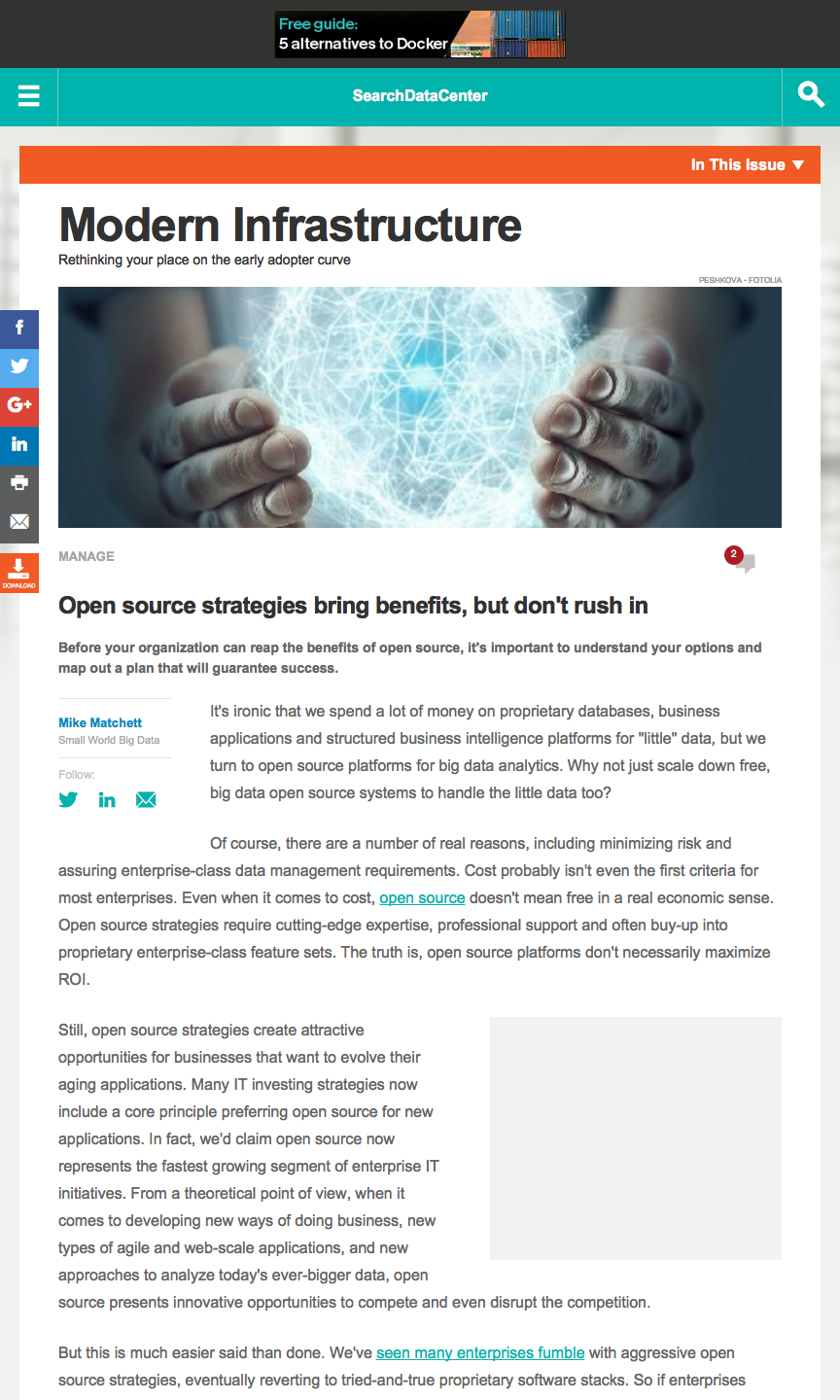Open source strategies bring benefits, but don’t rush in

An IT industry analyst article published by SearchDataCenter.
 Before your organization can reap the benefits of open source, it’s important to understand your options and map out a plan that will guarantee success.
Before your organization can reap the benefits of open source, it’s important to understand your options and map out a plan that will guarantee success.
Mike Matchett
Small World Big Data
It’s ironic that we spend a lot of money on proprietary databases, business applications and structured business intelligence platforms for “little” data, but we turn to open source platforms for big data analytics. Why not just scale down free, big data open source systems to handle the little data too?
Of course, there are a number of real reasons, including minimizing risk and assuring enterprise-class data management requirements. Cost probably isn’t even the first criteria for most enterprises. Even when it comes to cost, open source doesn’t mean free in a real economic sense. Open source strategies require cutting-edge expertise, professional support and often buy-up into proprietary enterprise-class feature sets. The truth is, open source platforms don’t necessarily maximize ROI.
Still, open source strategies create attractive opportunities for businesses that want to evolve their aging applications. Many IT investing strategies now include a core principle preferring open source for new applications. In fact, we’d claim open source now represents the fastest growing segment of enterprise IT initiatives. From a theoretical point of view, when it comes to developing new ways of doing business, new types of agile and web-scale applications, and new approaches to analyze today’s ever-bigger data, open source presents innovative opportunities to compete and even disrupt the competition.
But this is much easier said than done. We’ve seen many enterprises fumble with aggressive open source strategies, eventually reverting to tried-and-true proprietary software stacks. So if enterprises aren’t adopting open source because it’s cheaper, and it often lacks enterprise-class features, then why has it become such a popular strategy?
Adopting open source strategies goes hand in hand with an ability to attract top technical talent, Rajnish Verma said at the Dataworks Summit in June, when he was president of big data software vendor Hortonworks. Smart people want to work in an open source environment so they can develop in-demand skills, establish broader relationships outside a single company and potentially contribute back to a larger community — all part of building a personal brand, I suppose.
In other words, organizations adopt open source because that’s what today’s prospective employees want to work on…(read the complete as-published article there)
